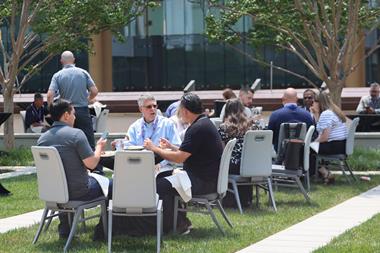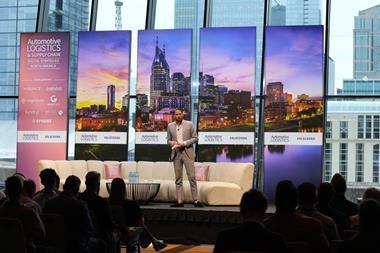
The ongoing dispute between 30 of North America’s rail freight operators and 11 US labour unions took another step this week when the US Obama administration appointed a five-person Presidential Emergency Board (PEB) to investigate the conflict.
“Freight rail is vital to our economy and our future,” said President Obama. “It’s in our national interest to make sure our freight rail system runs smoothly, since a disruption could affect businesses across the country and cause unnecessary damage to our already-fragile economy.”
The automotive industry, which has already had its sales forecast revised down by 1m units for 2012, is sensitive to this disruption.
“Rail freight was very vital to GM and we hope the current dispute between providers and unions is resolved soon,” a spokesman for GM told Automotive Logistics.
Toyota, which uses rail for incoming parts and components to its US plants (especially those sourced from Japan), as well as for the distribution of finished vehicles, said it was watching the situation but found it difficult to say yet what the total impact would be.
Contract talks between the labour unions and the rail providers, which began in 2010, have been fuelled by the knowledge amongst workers that the railroads have increased revenue and profits over the last six consecutive quarters. Many feel they deserve a larger cut of the rewards than that on offer. It is understood that rising healthcare costs are also central to the talks.
The rail providers, which include BNSF, CSX, Kansas City Southern, Norfolk Southern and Union Pacific, and are represented by the National Carriers’ Conference Committee, contend that above-market wage increases of 17% over six years have been offered and that the additional demand would compromise the estimated $12 billion the industry plans to spend this year on much-needed track improvements and other capital expenditure.
A new five-year agreement was signed last month between the United Transportation Union, which represents about a third of the railroads’ unionized employees, and the NCCC covering conductors, yardmen, brakemen, engineers (where UTU represents engineers), firemen/hostlers and yardmasters. Therefore, the UTU is not affected by the creation of the PEB.
“The carriers successfully reached an agreement with the industry’s largest union, the United Transportation Union (UTU) and its Yardmasters Department,” said NCCC chairman A. Kenneth Gradia. “This agreement, which covers 40,000 employees is demonstrably fair and balanced by any objective measure. We look forward to presenting a compelling case to the PEB detailing why this agreement should serve as a pattern for settlement with the remaining 11 unions.”
Those unions were released from mediation on September 6 by the National Mediation Board, which resulted in a 30-day cooling off period while the Obama administration considered the appointment of a PEB. The decision to go ahead with one now begins a second 30-day cooling off period while the investigation takes its course and non-binding recommendations are due no later than November 6.
The PEB will provide a structure for the two sides to resolve their disagreements and hear evidence from both. Following its 30-day recommendation it will deliver a report to the President recommending how the dispute should be resolved.
A further 30-day period will then be given for the two sides to consider the recommendations and seek a voluntary settlement.
Failing this, action could then take place according to the Railway Labour Act, including a work stoppage by labour or a lockout by one or more of the carriers, threatening freight movements around the country. Congress is then likely to get involved and impose a third-party settlement.





































